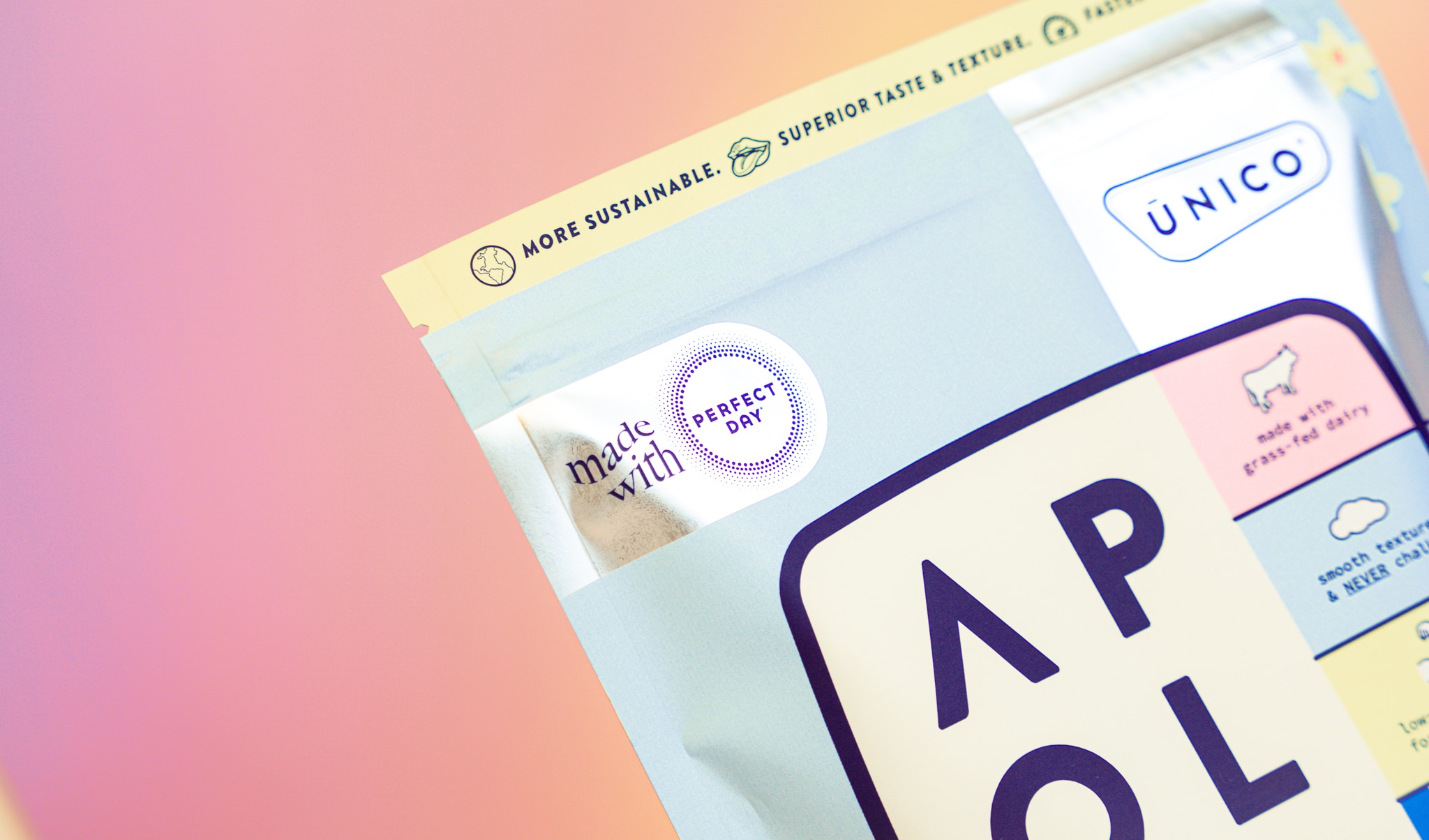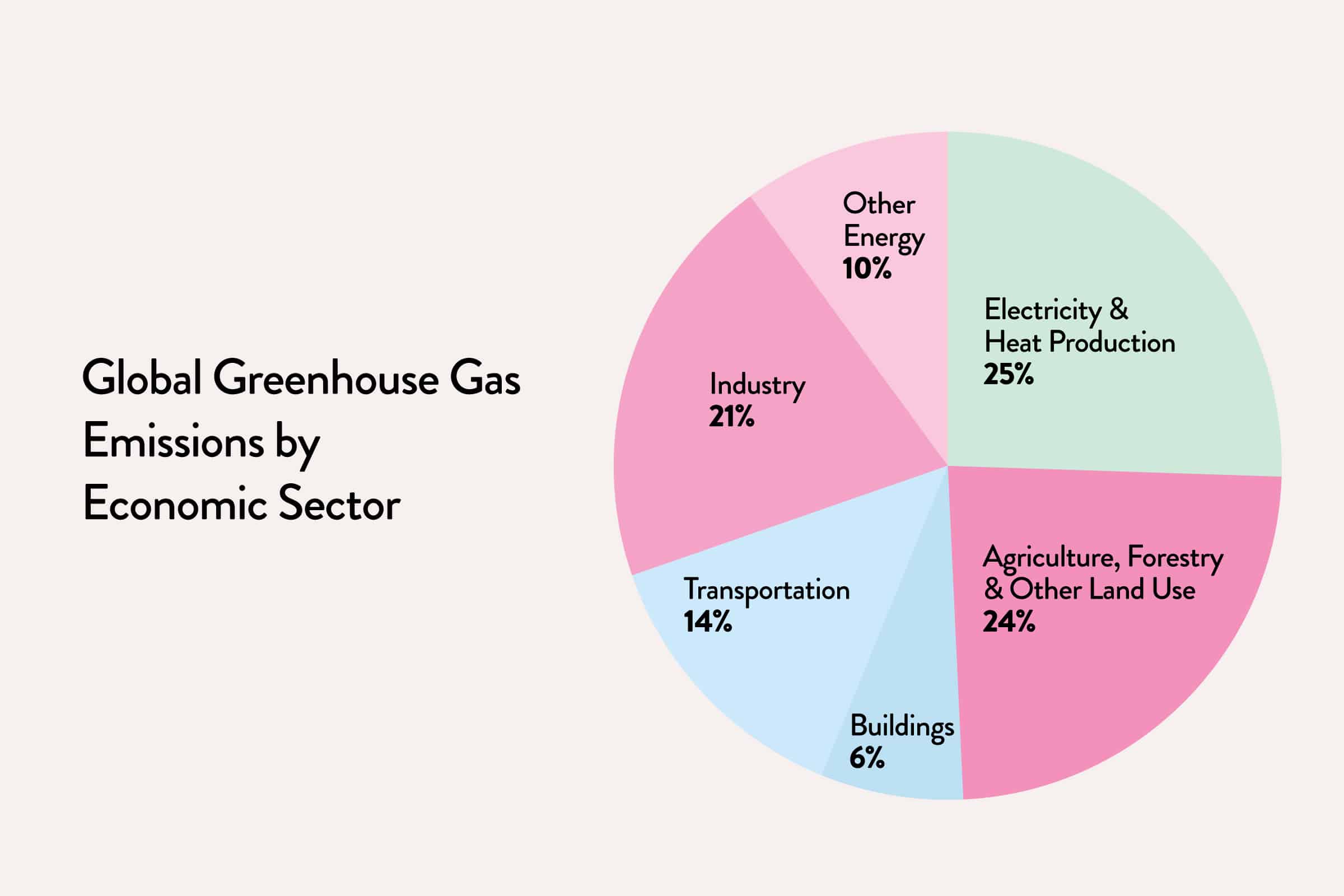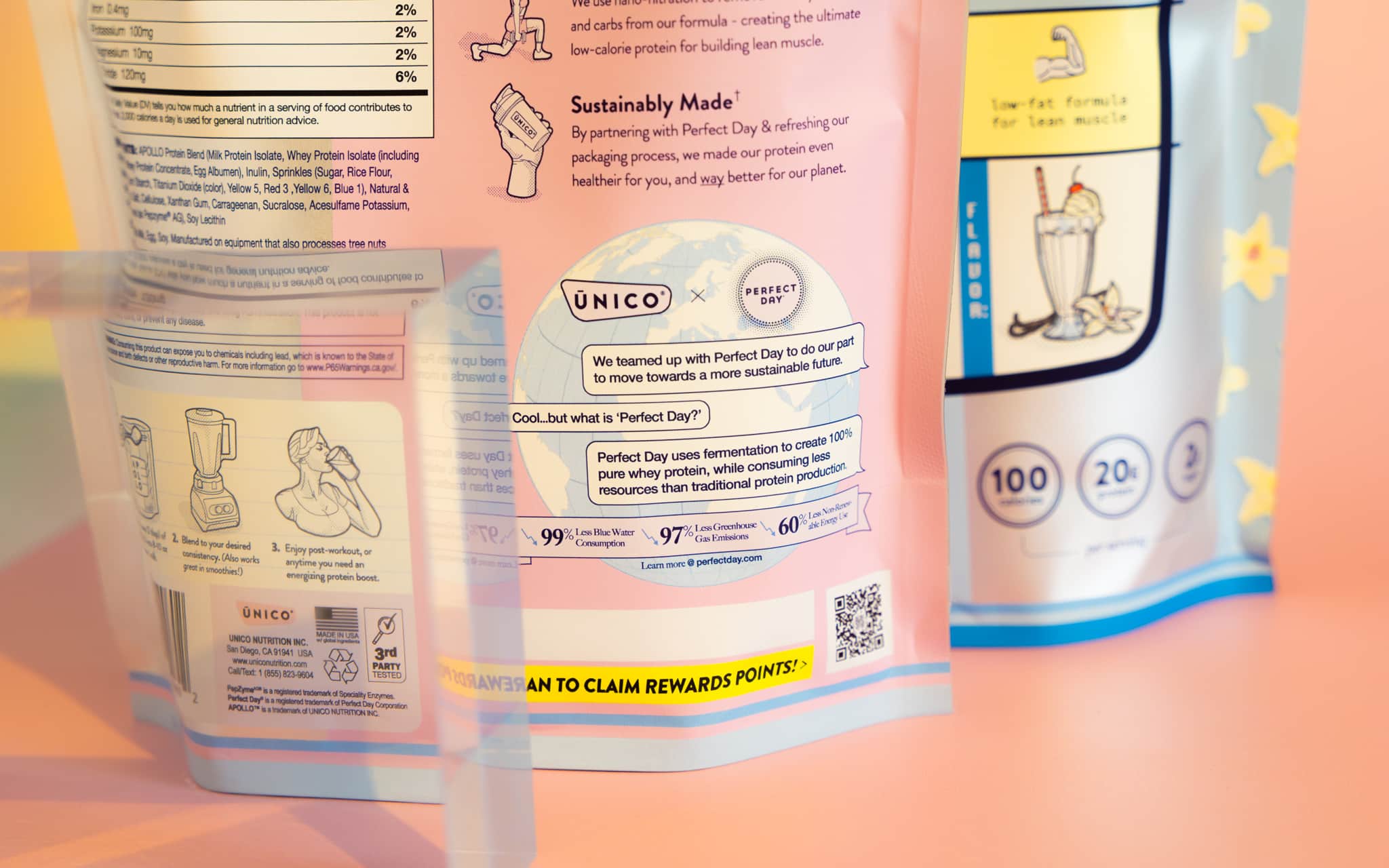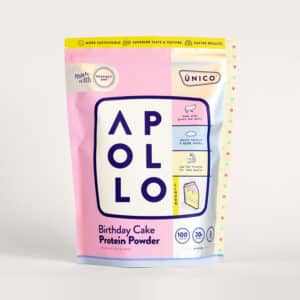Sustainable protein powder is now a thing, and it’s about to change the nutritional supplement world as we know it. (And maybe the entire food industry).

If you haven’t noticed, our culture is collectively starting to make more eco-friendly decisions.
We are becoming more aware of the (often negative) impact that our modern lives have on the health of our planet, and we’re deciding to do something about it.
From using less single-use plastic, to implementing more energy efficient household products and services, there is a clear movement towards greener behaviors.
At UNICO we are taking a leading role in introducing sustainability to the protein powder industry.
Here’s how sustainable protein, and sustainable food technology solutions are sparking change that will extend way beyond the supplement industry.
Why Sustainability Matters
The volatile temperatures recorded around the country this Summer seem to have us all thinking a little more deeply about the long-term health of our planet.
- Has it always been this hot (or cold?)
- Have we always had these storms, droughts, or been this prone to wildfires?
- What is causing these changes?
- What Can I do to Help?
Without getting too ‘doomsday’ on you (although maybe that’s what we all need), it’s fair to say that many of us are starting to realize that things are trending in, well, a somewhat ‘troubling’ direction.
2022 was the 6th warmest year ever recorded on average worldwide since we began tracking in the late 1800s.1
There have been more frequent natural disasters, and anomalies than ever before.
Our air quality index is volatile, and often tarnished with pollutants, toxic fumes, and smoke from forest fires.2
What is Responsible for the Climate Change?
There are many more thorough resources available on the topic, but as a brief summary –
The general consensus amongst the scientific community is that our society operates in a way that emits too many greenhouse gasses into the air.
Transportation, agriculture, buildings, and electricity/heat production all contribute to the emissions we put out daily.
No matter the source, these gasses then become trapped in our atmosphere, and lead to an unnatural processing of UV radiation from the sun.3
Again, It’s an extreme over-simplification, but this is the phenomenon responsible for the increased temperatures, and global warming that we have been experiencing.
And most agree that it is the global warming that trigger the host of other issues we see – from droughts to weather abnormalities to floods to fires, etc.
Now.
A Brief Word on Politics.
It is with the first mention of the term ‘global warming’ that it must be said:
While some may see any discussion of global/environmental health as an invitation to a political debate, our stance is this:
Look at the facts, and decide for yourself if making more ecologically-conservative decisions makes sense for you, and aligns with your values.
It is not our goal, or duty, as a small business, to align with a specific political party. Rather, we consider the data available to us, and decide the best course of action, based on the responsibilities we have to our employees, customers, community, and planet.
Now that that’s out of the way.
For those that have done some homework, and are looking for ways to reduce their environmental impact, some ‘low-hanging fruit’ includes:
- Conserving energy / power when possible (turning off lights and electronics when they aren’t needed, etc)
- Being aware of time spent running water when cleaning dishes, or bathing
- Lifestyle travel habits (biking instead of driving, carpooling when possible etc)
- Purchasing and using more eco-friendly products
Where is this all going?
And how does it lead to sustainably-made protein shakes?
Well, as producers of a common consumer good (protein powder), it’s in that last bucket that we became especially interested…
Read on.
Companies are Making More Eco-Friendly Decisions
The frightening climate change trends have prompted many forward-thinking companies to get involved.
American innovation has yielded some incredible new innovations that can help reduce the amount of emissions that our society produces.
Emissions: The term used, within a climate-change context, for the damaging greenhouse gasses that our lives produce.
We’ve all heard of Tesla, solar panels (and their sometimes pushy salesmen/women), paper straws, Leonardo DiCaprio’s climate-change-themed Academy Award acceptance speeches, vegan leather, and other earth-friendly phenomenon that have made their way into pop-culture limelight.
You’re probably also aware of different foods and diets that come with climate-change tie-ins.
Sustainable Foods 1.0 : Plant-Based Party-Time!
In hindsight, we will probably consider the rise of plant-based foods as ‘sustainable foods 1.0’.
A plant-based diet consists of eating foods that require less resources to cultivate, and is surely ‘more sustainable’ than one containing various meats, and heavily processed foods.
As an example, the rallying cry of the infamous ‘Impossible Burger‘ (and the mission of their competitor Beyond Meat), is that you are eating foods that conserve more of our planet’s resources.
These products and brands suggest that eating meat is ‘bad’ for the environment, due to the significant resources required to operate cattle farms.
They also bring to light the topic of our agriculture, and how cows themselves actually emit a surprising amount of toxic gas (methane) just by burping!4
Burping aside, plant-based diets, which center on getting plenty of healthy vegetables, will surely continue to grow in popularity.
And no, the plant-based party isn’t ending anytime soon..
But there is a definitive ‘new kid on the block’ when it comes to sustainable foods, and it is getting some serious attention.
Sustainable Foods 2.0 : Fermentation For the Win!
Plants are more sustainable than cheeseburgers and Oreos, and they’re a hell of a lot healthier.
But is there a category of food that is even more sustainable than plants?
There actually is – and it is food that produced through fermentation.
What you are about to read is going to sound like science fiction – which it was, up until about 18 months ago!
Fermentation 101
When most of us think of ‘fermentation’ we think of yogurt, kombucha, kimchi, or the process that yields our favorite Sauvignon Blanc.
Fermentation is the process of exposing a sugar source to a certain microflora catalyst (often fungi or bacterial in nature), which then causes the sugar to break down, therefore releasing the desired compound(s).
To drill down a little deeper, the bacteria or fungi used are carefully chosen because they act on the sugar a certain way.
The truth is – they are really just living organisms trying to survive, similar to how your natural gut bacteria feed on prebiotic fiber in order to thrive and re-produce.
But to give more context, let’s look at three of the most common food fermentation processes:
- Wine: Yeast is used to break down the natural sugars in grapes into alcohol and carbon dioxide
- Yogurt: A certain bacteria is used to break down milk sugars to produce lactic acid and other healthy byproducts (including more ‘good’ bacteria known as probiotics!)
- Kombucha: Both yeast (fungi) and specific bacteria are used to break down a sugar / tea mixture and produce certain byproducts that give kombucha its unique flavor
Fermentation is a fascinating process that has been used for hundreds of years to produce some of our favorite foods and beverages.
And yes, we are finally ready to share how it is being used to produce sustainable protein and other sustainable food sources.
It’s Dairy Protein, Just Without the Cow
Cue confused expression, skepticism, and the inevitable slew of follow-up questions.
You aren’t the only one to react that way, trust me!
Let’s start with this –
You recall how bacteria, and fungi were both being used in those fermentation processes above, right?
But How were they actually breaking down sugar?
Well, both bacteria, and fungi were actually producing enzymes, which then break down the sugars.
And guess what?
Enzymes are proteins.
Starting to put it all together now?
That’s right…
The ‘Aha’ Moment:
Sustainable proteins are produced by harvesting the natural enzyme (protein) production of some very specialized types of fungi as they go about the process of fermentation.
What some very, very smart scientists (like the ones at our partner company Perfect Day) have done, is inscribed the genetic coding (DNA) for whey protein into the fungi.
So instead of the fungi producing its usual enzyme (a protein called cellulase), we have told it, through deliberate genetic modification, to produce whey protein instead.
It’s a truly ingenious process which results in a perfect, pure, and complete dairy protein which is completely identical to the beta-lactoglobulin protein found in cow’s milk.
And the most incredible part, as you can imagine, is that the process takes just a fraction of the resources required to produce traditional whey protein.
In fact, the process of making sustainable whey produces 97% less greenhouse gasses than turning cow’s milk into whey, and 99% less water consumption.
The Bottom Line
‘Precision fermentation’, or the process of using genetic coding and fermentation to produce real food, is likely the most significant food innovation of our lifetime.
It can be used to create not just whey protein, but other types of proteins.
Other macro-, and micronutrients that we eat and rely on every single day can also be produced using this technique.
As you saw in the chart above, agriculture / food production represent 24% of society’s greenhouse gas emissions.
Food innovation like this can make a massive difference in ensuring our planet remains a safe, and hospitable home for generations to come.
Summary:
- Excessive greenhouse gas emissions are responsible for climate change and other environmental issues that threaten the long-term health of our planet
- Companies are striving for ways to address the climate crisis by producing goods and services in a more eco-friendly way
- A vegan diet is more earth-conscious than one which includes meats and other refined foods
- Fermentation is the process through which fungi and bacteria act on sugar to produce specific byproducts
- New DNA strain engineering technology is being used to create nutrient-dense foods through the natural fermentation process
- Precision fermentation uses just a fraction of the resources that traditional means require, and may be a viable way to conserve resources and significantly reduce greenhouse gas emissions
Sources:
1https://www.ncei.noaa.gov/access/monitoring/monthly-report/global/202213
2https://gispub.epa.gov/airnow
3https://www.usgs.gov/faqs/why-climate-change-happening-and-what-are-causes
4https://www.ucdavis.edu/food/news/making-cattle-more-sustainable
5https://www.labmanager.com/the-science-of-fermentation-1432
Recommended Reading:
- What is Sustainable Protein Powder? And How is it Made? - July 31, 2023
- How to Make a Protein Shake: The Ultimate Guide - May 3, 2023



